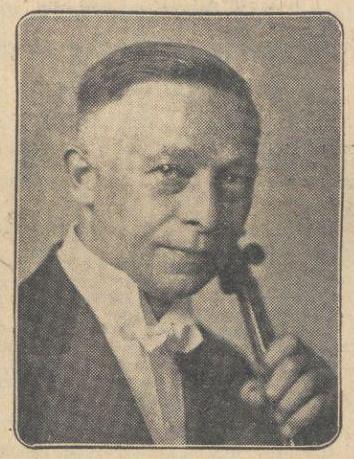Jonny Heykens on:
[Wikipedia]
[Google]
[Amazon]
 Jonny Heykens, Johannes Jacobus Heijkens (24 September 1884 – 28 June 1945) was a Dutch composer of light classical music, remembered above all for his jaunty ''Ständchen'' (Serenade) No.1 Opus 21.
Heykens was born at
Jonny Heykens, Johannes Jacobus Heijkens (24 September 1884 – 28 June 1945) was a Dutch composer of light classical music, remembered above all for his jaunty ''Ständchen'' (Serenade) No.1 Opus 21.
Heykens was born at
 Jonny Heykens, Johannes Jacobus Heijkens (24 September 1884 – 28 June 1945) was a Dutch composer of light classical music, remembered above all for his jaunty ''Ständchen'' (Serenade) No.1 Opus 21.
Heykens was born at
Jonny Heykens, Johannes Jacobus Heijkens (24 September 1884 – 28 June 1945) was a Dutch composer of light classical music, remembered above all for his jaunty ''Ständchen'' (Serenade) No.1 Opus 21.
Heykens was born at Groningen
Groningen (; gos, Grunn or ) is the capital city and main municipality of Groningen province in the Netherlands. The ''capital of the north'', Groningen is the largest place as well as the economic and cultural centre of the northern part of t ...
. He was taught violin by Eugène Ysaÿe at the Brussels Conservatory
The Royal Conservatory of Brussels (french: Conservatoire royal de Bruxelles, nl, Koninklijk Conservatorium Brussel) is a historic conservatory in Brussels, Belgium. Starting its activities in 1813, it received its official name in 1832. Provid ...
. He played in various orchestras before founding his own orchestra in Groningen in 1914. After the First World War he toured Europe and achieved great popularity, especially in Germany. Heykens composed pieces for his orchestra, plus songs and musical comedies. His records sold widely. In the Second World War, he continued touring throughout Europe. He joined the NSB, the fascist National Socialist Party of the Netherlands. He expressed racist opinions about Jews and black people and he performed at the parties of important Nazi officials. Resistance groups broadcast his famous tune with words:'' Sells his people and homeland for six loose cents''. He died in prison in Hilversum
Hilversum () is a city and municipality in the province of North Holland, Netherlands. Located in the heart of the Gooi, it is the largest urban centre in that area. It is surrounded by heathland, woods, meadows, lakes, and smaller towns. Hilvers ...
.
In Japan the Serenade became a popular song, and so it was selected in 1943 by NHK, The Broadcasting Corporation of Japan as the signature tune of "The Evening Show for the Front Line", a radio programme to entertain serving Japanese soldiers
Japanese may refer to:
* Something from or related to Japan, an island country in East Asia
* Japanese language, spoken mainly in Japan
* Japanese people, the ethnic group that identifies with Japan through ancestry or culture
** Japanese diaspor ...
and sailors, in spite of strenuous government efforts to dispense with Western cultural influences. After WWII, Japanese National Railways (JNR) chose part of the serenade for use in its passenger car
A car or automobile is a motor vehicle with wheels. Most definitions of ''cars'' say that they run primarily on roads, seat one to eight people, have four wheels, and mainly transport people instead of goods.
The year 1886 is regarded as ...
s. It is still used on some of Japan Railway
The Japan Railways Group, more commonly known as the or simply JR, consists of seven for-profit stock companies that took over most of the assets and operations of the government-owned Japanese National Railways (JNR) on April 1, 1987. Mo ...
(JR) trains.
Heykens' Serenade was also used during the 1940s, by Albert Sandler as the signature tune for the BBC Sunday evening radio programme "The Palm Court Orchestra at the Grand Hotel." In Germany, Heykens Serenade is the music to Loriot's comedy sketch "Schmeckt's?"
References
External links
* Dutch composers 1884 births 1945 deaths People from Groningen (city) Dutch collaborators with Nazi Germany {{Netherlands-composer-stub